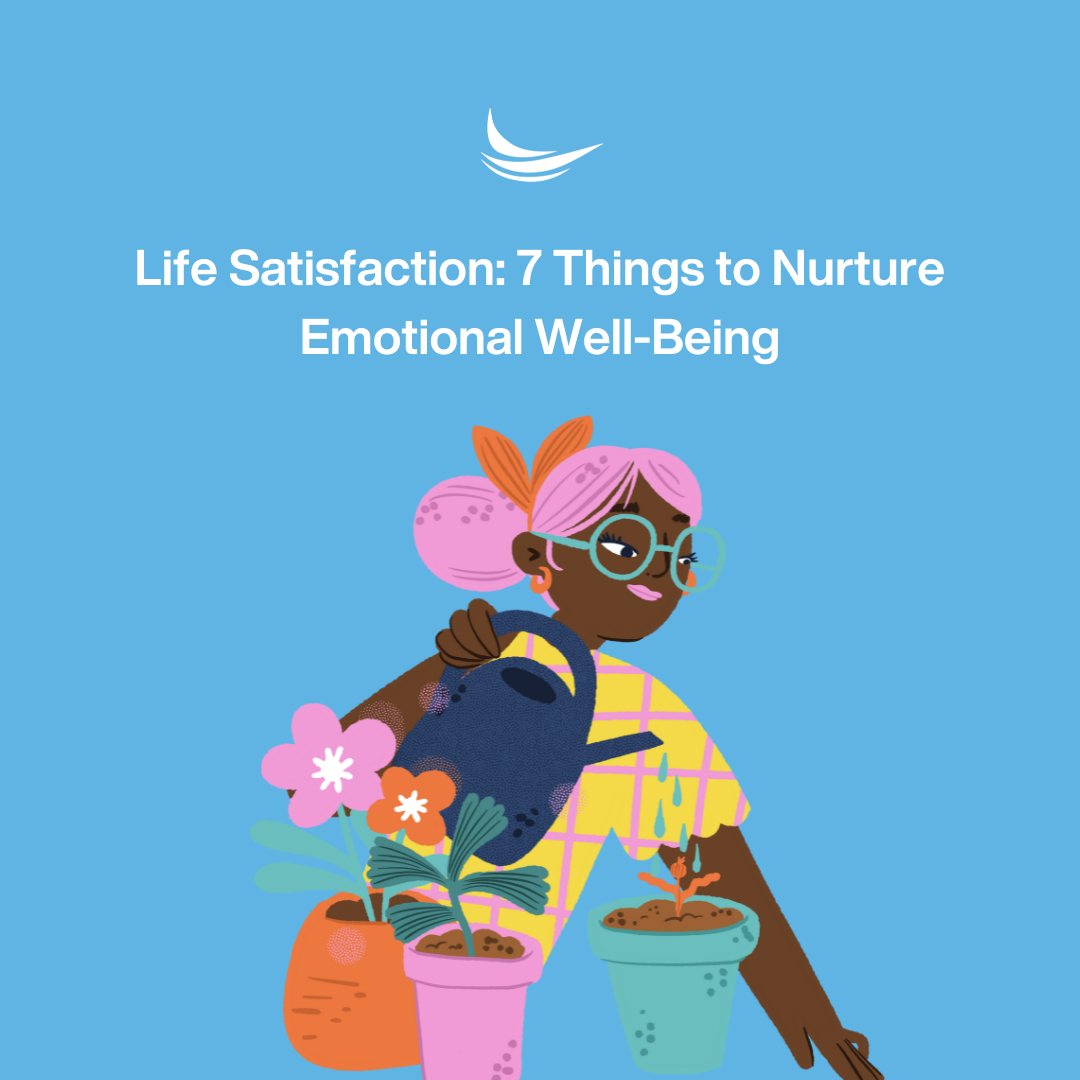7 Things to Nurture Emotional Well-Being

“The best predictor for adult life satisfaction is subjective well-being and emotional health during childhood” according to the World Happiness Report. Less than half (47%) of Americans report being “very satisfied” with their own lives. Adults are more positive about what is happening in their own lives versus the state of the nation. While things may be “fine” in a general state of happiness, it appears that both youth and adults struggle with experiencing the fullness of joy.
“Maybe that’s what happens when you grow up, you feel less joy,” says the emotion of Joy in the movie “Inside Out 2”. A child’s life changes as they get older and take on more responsibilities into adulthood. Factors such as race, gender, living situation, health status, income, and education levels are important to name as they influence experiences of life satisfaction. Lower life satisfaction was reported by girls in comparison to boys at around age 12, with the gap widening between the ages of 13-15.
Teenage worries often resemble adult worries, especially as kids and teens take on more responsibilities. In addition to worries about the state of the world, they include:
- fears of uncertainty, especially when impacted by instability
- fear of failures (e.g., school, sports, performance situations)
- worries related to relationships, appearance, and social acceptance
- worries about family such as health, safety & finances
There are both risk factors and protective factors that impact overall well-being and emotional health including biological, psychological, and social factors. This is referred to as the biopsychosocial model approach with mental health at the core of these three intersecting domains. No two people will have the same personality; even identical twins, while sharing similarities are different people and have different lived experiences.
While life satisfaction can and will change at various stages of life, here are seven things that help nurture positive emotional health.
- stable, supportive adult relationships; this can start with the therapeutic relationship
- predictable routines and rituals to provide stability amid uncertainty
- good interpersonal skills
- ability to regulate emotions, address unhelpful thinking patterns, and make healthy decisions
- positive peer influences (including positive social media influences)
- safe schools and workplaces
- opportunities to build community and connect to resources
If you are seeking ways to improve your emotional well-being and improve life satisfaction, therapy can help support your goals.
Written By: Charlotte Johnson, MA, LPCC
The information featured on this site is general in nature. The site provides health information designed to complement your personal health management. It does not provide medical advice or health services and is not meant to replace professional advice or imply coverage of specific clinical services or products. The inclusion of links to other websites does not imply any endorsement of the material on such websites.



























